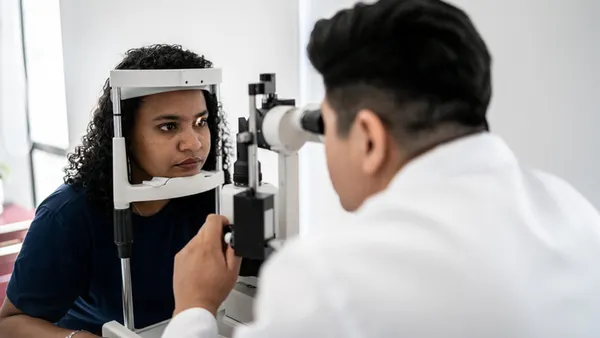Dive Brief:
- FDA's Center for Devices and Radiological Health on Tuesday released a finalized strategic plan for addressing sex- and gender-specific issues in medical technology design and performance, including improving data collection and analysis. The effort is aimed at both devices developed specifically for women and those made for people of all sexes and genders.
- The agency emphasized the importance of representation in biomedical research, noting that historically, clinical studies overwhelmingly have been conducted in patients assigned as male at birth. "A lack of representation can have serious consequences for health outcomes for women," Terri Cornelison, director of the CDRH's Health of Women Program, said in a statement announcing the document's release.
- CDRH issued a proposed version of the Health of Women Strategic Plan in September 2019 and sought feedback from the public and other stakeholders before releasing the final iteration.
Dive Insight:
The plan follows several high-profile product safety issues regarding medical devices unique to women’s health. For example, the agency has taken actions that have included restricting sales of breast implants due to a potential cancer link and ordering an end to the use of surgical mesh devices for transvaginal repair of pelvic organ prolapse after thousands of women reported serious complications.
The new strategic plan for women's health oversight names the improvement of processes for early identification and communication of adverse effects of devices on women as one of its top three goals. "We plan to strengthen our approach in how we as a center survey, identify, scientifically evaluate, track, prioritize, address, and report current and emerging issues related to the health of women," the document states.
CDRH said it intends to seek out partners in academia, other federal agencies, industry, private foundations, patient advocacy groups and international organizations to explore initiatives to support research and innovation in medical technology to improve women's health.
Two additional priorities in the center's plan are data focused. The agency said it will look to modernize its policies to account for inclusion and evaluation of medical device data representing demographic subgroups, including sex- and gender-specific data.
An approach emphasizing sex- and gender-specific data analysis and reporting could inform device submission recommendations, CDRH said. Reporting of data on sex and gender has the potential to aid in the development of safer and more effective devices, help minimize adverse events in women, and assist CDRH in improving surveillance and signal detection, FDA said.
The plan also aims to develop a research roadmap to identify gaps and unmet needs related to the health of women. The agency wants to work with customers to build registries of women's devices and facilitate sex and gender analyses and expects the data will enhance recommendations on clinical trial device design.











